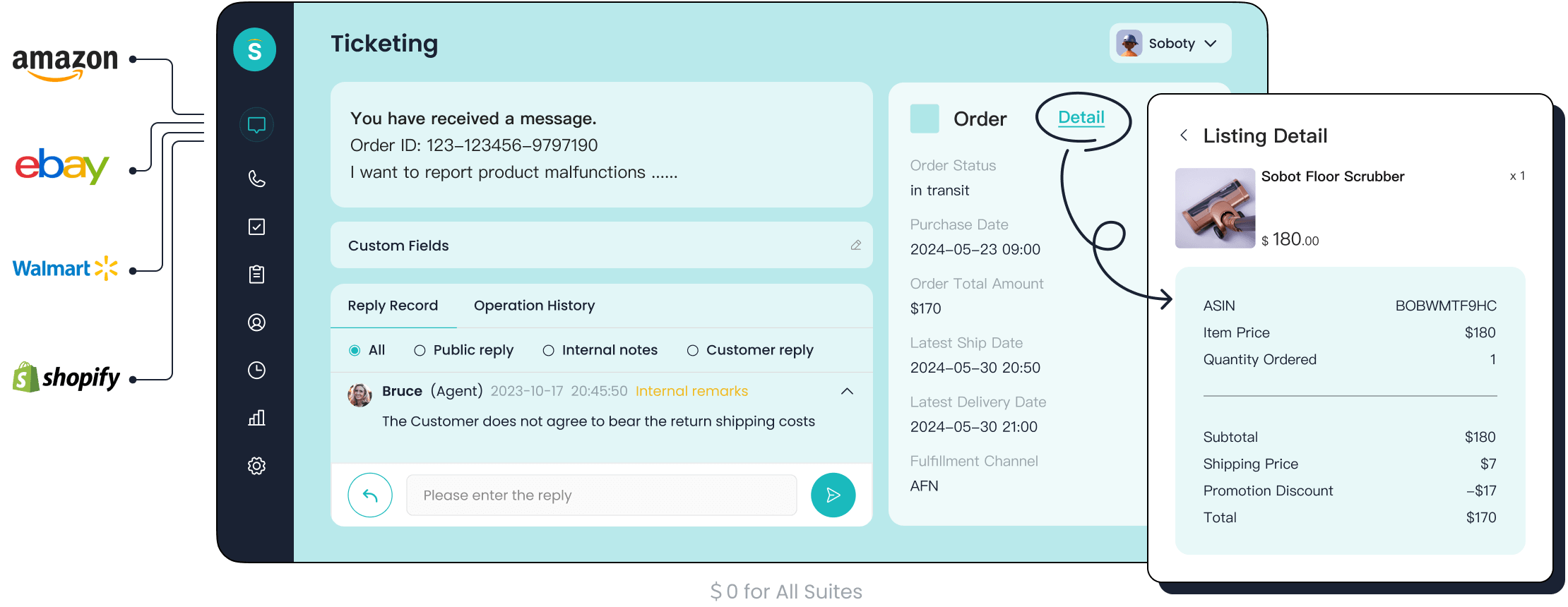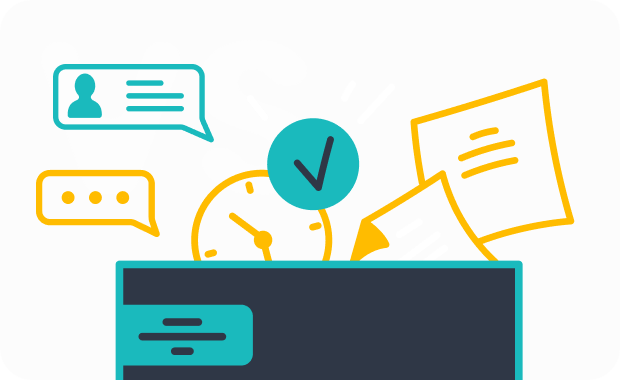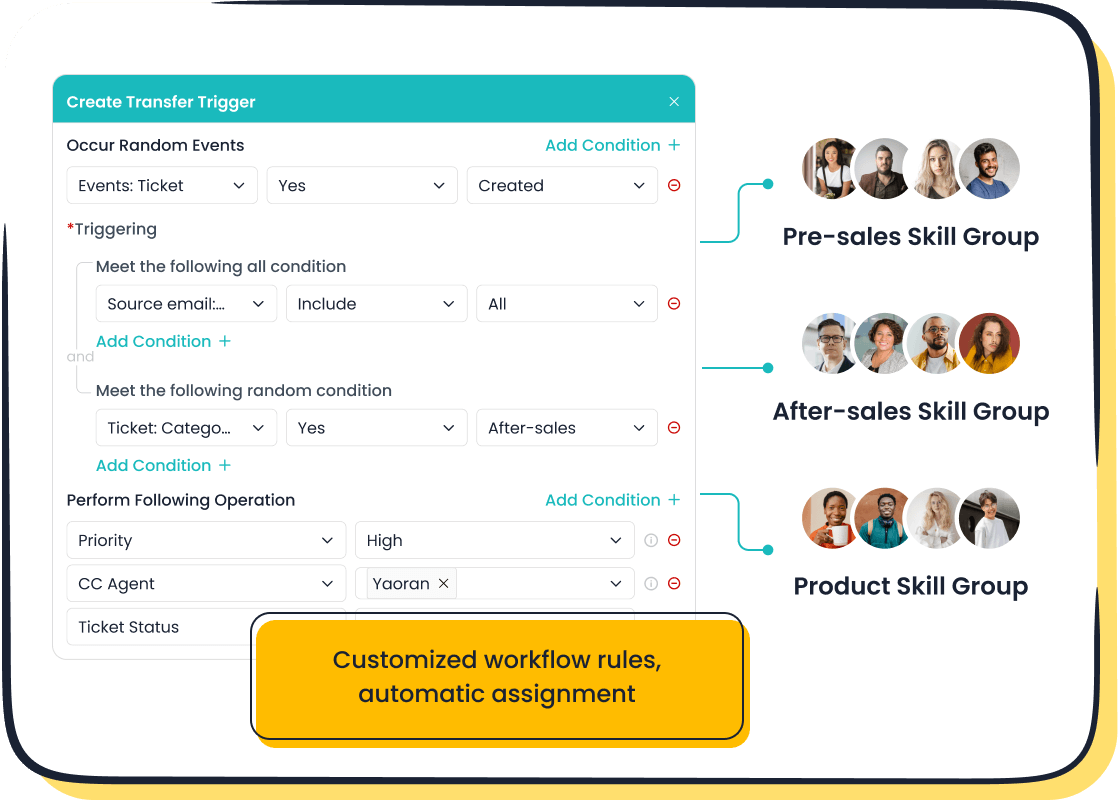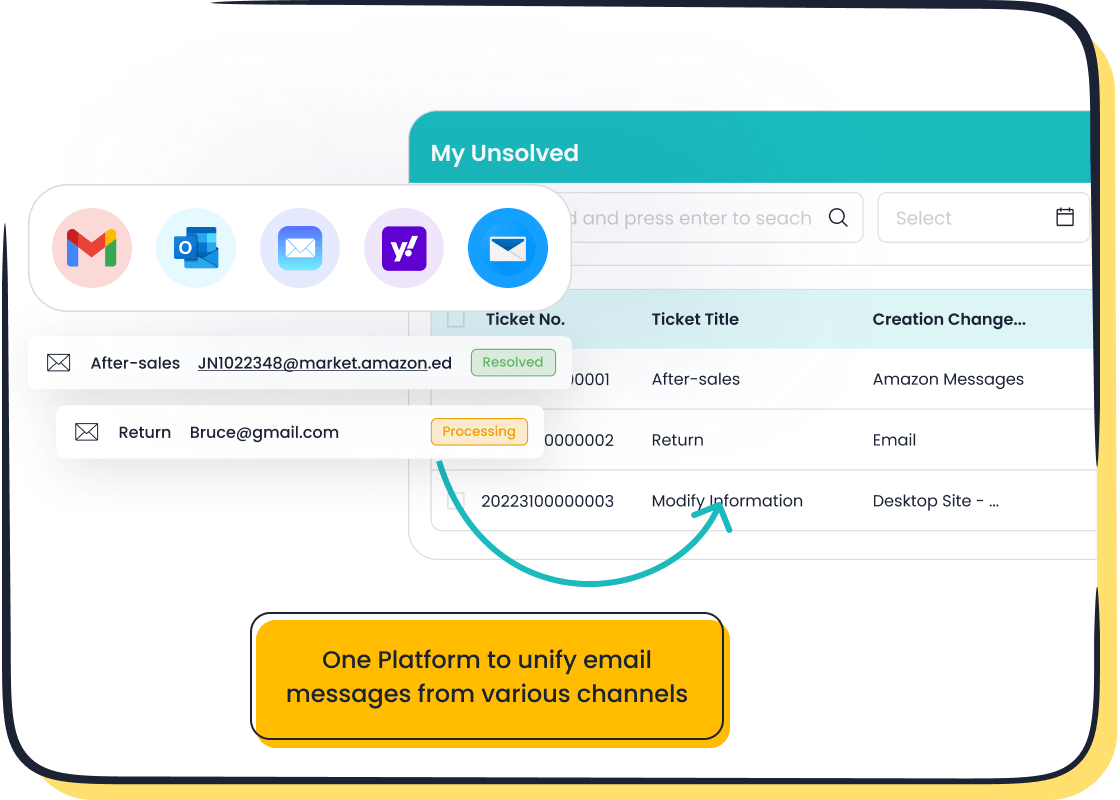Explore the Top Free Zendesk Alternatives Today

If you're searching for a customer support tool that's easy to use, affordable, and packed with features, you're not alone. Many businesses feel frustrated with Zendesk due to its high costs and limited flexibility. Did you know chatbots alone can handle 80% of basic inquiries, slashing customer service costs by 30%? Plus, 9 out of 10 customers expect smooth communication across channels. That’s why exploring a Zendesk free alternative, like Sobot, can transform your support strategy and keep your customers happy without overspending.
Why Businesses Seek Zendesk Alternatives
Common Limitations of Zendesk
Zendesk is a popular customer support tool, but it’s not without its flaws. Many businesses find its pricing structure confusing, with the best features locked behind expensive plans. This makes it hard for startups or small businesses to justify the cost. On top of that, the user interface can feel clunky and lacks the customization options that many teams need to tailor their workflows.
Another common complaint is the limited integration with e-commerce platforms like Shopify or Magento. For businesses that rely on these platforms, this can create inefficiencies. Some users have also pointed out that Zendesk struggles with providing a complete view of customers, which makes it harder to deliver personalized support. As one frustrated user put it, “Quit limiting the way we can contact support. It’s really annoying to spend almost 60K a year on Zendesk, and not be able to call.”
The Need for Affordable and Scalable Solutions
In today’s fast-paced world, businesses need tools that can grow with them. Traditional in-house contact centers often struggle with scalability and come with high costs. That’s where cloud-based solutions shine. They’re 27% cheaper and experience 35% less downtime compared to on-premises systems. This makes them a smart choice for businesses looking to save money while staying competitive.
Scalability is especially important for companies in industries like retail or gaming, where demand can spike unexpectedly. A solution that can handle these changes without breaking the bank is essential. That’s why many businesses are turning to Zendesk alternatives that offer flexibility and cost efficiency.
Benefits of Exploring Free Zendesk Alternatives
Switching to a Zendesk free alternative can bring several benefits. First, you’ll save money without sacrificing essential features like ticketing or live chat. Many free options also come with user-friendly designs, which means your team can get up to speed quickly. Plus, these tools often integrate seamlessly with your existing software, streamlining your workflows.
Free alternatives also provide scalability, so you won’t have to worry about outgrowing your support system. And let’s not forget about customer support. Many vendors offer fast and reliable assistance, ensuring you’re never left in the dark when issues arise. By exploring these options, you can find a solution that fits your needs and budget perfectly.
Key Features to Look for in a Zendesk Free Alternative
Omnichannel Support for Seamless Communication
Imagine being able to manage all your customer interactions—emails, chats, calls, and even social media messages—from one place. That’s the power of omnichannel support. It ensures your customers can reach you through their preferred channel, and you can respond without switching between multiple tools. This feature isn’t just convenient; it’s essential.
Did you know 64% of customer service agents say having a single view of customer interactions improves their performance? Plus, 80% of customers value speed above all else when it comes to support. With omnichannel tools, you can deliver faster responses and create a smoother experience. Businesses that understand the customer journey are also more likely to succeed, with 79% saying it helps them become more customer-focused. If you’re looking for a zendesk free alternative, make sure it offers this level of integration.
Ease of Use and Customization Options
A great customer service platform should feel like second nature to your team. You don’t want to spend weeks training your staff or figuring out how to use the tool. That’s why ease of use is so important. The best platforms are intuitive, allowing you to dive in and start solving customer issues right away.
Customization is another must-have. Every business is unique, and your support tool should adapt to your needs—not the other way around. Whether it’s tweaking workflows or creating personalized templates, a customizable platform ensures you’re always in control. Research shows that tools requiring minimal training and offering tailored experiences lead to better outcomes for both teams and customers.
Scalability for Growing Businesses
As your business grows, so do your customer support needs. A scalable platform ensures you’re ready to handle increased inquiries without compromising service quality. This is especially important for industries like retail or gaming, where demand can spike unexpectedly.
Scalable tools help you optimize your team’s efficiency while maintaining a high level of service. They also provide insights into customer behavior, helping you adapt to changing needs. By choosing a zendesk free alternative that grows with you, you’ll enhance customer satisfaction, build loyalty, and strengthen your brand reputation.
AI Automation and Workflow Optimization
AI automation is transforming how businesses handle customer support. It’s not just about saving time—it’s about creating smoother workflows and happier customers. Imagine a system that automatically assigns tickets, prioritizes urgent issues, and even suggests solutions to your team. That’s the power of AI in action.
One of the biggest advantages of AI automation is its ability to reduce repetitive tasks. For example, robotic process automation (RPA) can handle operational and transactional tasks with incredible speed and accuracy. This means fewer errors and faster resolutions. Studies show that RPA boosts productivity and helps teams manage more processes without breaking a sweat. It’s like having an extra set of hands that never gets tired.
AI also optimizes workflows by analyzing data and providing actionable insights. Let’s say your ticketing system notices a spike in similar customer issues. AI can flag this trend and suggest updates to your knowledge base. This proactive approach not only improves efficiency but also enhances the customer experience. After all, faster resolutions mean happier customers.
Another game-changer is AI-powered chatbots. These bots can handle up to 80% of basic inquiries, freeing your team to focus on complex problems. They’re available 24/7, ensuring your customers always get the help they need. Plus, they integrate seamlessly with your customer service platform, creating a unified experience across channels.
If you’re exploring a zendesk free alternative, look for tools that leverage AI automation. They’ll help you streamline operations, reduce costs, and deliver top-notch support. With the right technology, you can transform your customer support into a well-oiled machine.
Top Free Zendesk Alternatives for 2025

FreshDesk: A Comprehensive Zendesk Alternative
FreshDesk stands out as a robust zendesk free alternative, offering a feature-rich platform that caters to businesses of all sizes. One of its biggest advantages is the availability of a free plan for up to 10 agents, making it an excellent choice for startups or small teams. Unlike Zendesk, which lacks a free version, FreshDesk provides essential tools like ticketing, email support, and basic automation without any upfront cost.
Its Freddy AI takes automation to the next level, helping you streamline workflows and resolve customer inquiries faster. Whether it’s assigning tickets or suggesting solutions, Freddy AI ensures your team stays productive. FreshDesk also boasts over 1,000 integrations, allowing you to connect with popular apps and platforms effortlessly. While Zendesk offers slightly more integrations, FreshDesk’s affordability and customization options make it a strong contender.
If you’re looking for a customer service platform that balances cost and functionality, FreshDesk is worth exploring. Its intuitive interface and scalable features ensure you’re prepared to handle growing customer support demands.
Zoho Desk: Versatile and User-Friendly
Zoho Desk is another excellent option among zendesk alternatives, known for its versatility and ease of use. Its intuitive design allows you to set up and start managing customer support in just a few hours. Users like Shayla B., a Human Resources Specialist, have praised Zoho Desk for improving team efficiency and increasing customer requests by 10% due to faster resolutions.
This platform excels in automation, omnichannel support, and customization. You can integrate it with other Zoho apps or third-party tools, making it adaptable to your unique needs. While it lacks a desktop app, its mobile-friendly design ensures you can manage support on the go. If you value simplicity and flexibility, Zoho Desk is a fantastic choice.
osTicket: Essential Features for Small Businesses
For small businesses, osTicket offers a cost-effective solution with essential features. It’s completely free to use, with no recurring per-agent fees, making it ideal for budget-conscious teams. The platform simplifies ticket management with tools like helpdesk threads and ticket assignment releases, ensuring clear communication and task flexibility.
Customization is another highlight. You can tailor workflows to match your business needs, whether it’s setting up unique ticket categories or automating responses. osTicket also supports exporting agent data, making it easier to manage roles and responsibilities. If you’re searching for a reliable ticketing system that won’t strain your budget, osTicket delivers on all fronts.
Help Scout: Simple and Effective
If you’re looking for a straightforward yet powerful help desk software, Help Scout might be the perfect fit. It’s designed to simplify customer support while maintaining a professional touch. With its clean interface and intuitive features, your team can start managing inquiries in no time.
One of Help Scout’s standout features is its shared inbox. This tool lets your team collaborate effortlessly, ensuring no customer query slips through the cracks. It also offers a knowledge base feature, allowing you to create self-service resources for your customers. Did you know that 67% of customers prefer solving issues on their own before reaching out for help? With Help Scout, you can meet that expectation while reducing your team’s workload.
Another reason to consider Help Scout is its focus on personalization. The platform provides detailed customer profiles, helping your team deliver tailored responses. This personal touch can make a big difference in building trust and loyalty. Plus, Help Scout integrates with popular tools like Slack and Shopify, making it a versatile choice for businesses of all sizes.
While it may not have as many advanced features as zendesk, Help Scout excels in simplicity and effectiveness. It’s a great option if you want to streamline your customer support without overwhelming your team.

Sobot Ticketing System: Unified and Intelligent Support
When it comes to delivering unified and intelligent customer support, the Sobot Ticketing System stands out. It’s more than just a tool—it’s a complete solution designed to simplify your workflows and enhance customer satisfaction.
Here’s a quick look at what makes Sobot’s ticketing system so effective:
| Feature | Result/Impact |
|---|---|
| Workflow Automation | Streamlines workflow and resolves complex issues. |
| Customizable Fields | Enhances adaptability to specific business needs. |
| SLA Management | Improves service level adherence and accountability. |
| Customer Satisfaction | Over 95% of customers reported satisfaction. |
| Sign-off Rate Improvement | Increased by about 35%. |
| COD Collection Rate | Increased by about 40%. |
The system automates repetitive tasks like ticket assignment and response prioritization, saving your team valuable time. Customizable fields let you tailor the platform to your unique needs, ensuring it fits seamlessly into your operations. SLA management keeps your team on track, ensuring timely responses and accountability.
What’s more, Sobot’s ticketing system includes features like canned replies and condition-triggered workflows. These tools speed up response times and improve efficiency. Businesses using Sobot have reported significant improvements, including a 35% boost in sign-off rates and a 40% increase in COD collection rates.
If you’re searching for a zendesk alternative that combines intelligence with simplicity, Sobot’s ticketing system is worth exploring. It’s a reliable choice for businesses aiming to elevate their customer support game.
How These Zendesk Alternatives Compare

Feature Comparison Across Platforms
When comparing Zendesk alternatives, it’s clear that each platform offers unique strengths. Let’s break it down:
| Feature | Helpshift | Zendesk |
|---|---|---|
| Pricing | Starts at $150/month | $149/month for one user |
| Omnichannel Solution | Unified and seamless | Fragmented |
| In-app Support | Prioritized and efficient | Overlooked and inefficient |
| Multilingual AI | Custom-trained, low error rate | Relies on Google Translate |
| Ticket Management | Unlimited views, folder grouping | Limited views, no folder grouping |
| Intent Detection AI | Classifies 95% of issues accurately | Classifies 60% of issues |
| Ease of Setup | Unified SDK, easy setup | Fragmented SDKs, longer setup time |
Helpshift excels in areas like multilingual AI and intent detection, making it a strong choice for businesses with global customers. Zendesk, while popular, struggles with fragmented solutions and higher error rates in AI translations. If you’re looking for a help desk software that’s intuitive and efficient, exploring these alternatives can save you time and effort.
Usability and Learning Curve
How easy is it to get started with these platforms? Usability plays a huge role in your team’s productivity. Here’s a quick comparison:
| Component | Description |
|---|---|
| Learnability | Helpshift offers intuitive design, while Zendesk has a steeper learning curve. |
| Efficiency | Helpshift’s unified platform speeds up workflows. Zendesk’s fragmented tools slow things down. |
| Memorability | Helpshift’s simple interface ensures users quickly regain proficiency after breaks. |
| Errors | Helpshift minimizes errors with clear documentation. Zendesk’s vague guides can lead to mistakes. |
| Satisfaction | Helpshift users report higher satisfaction due to its user-friendly design. |
If you want a platform that’s easy to learn and use, Helpshift stands out. It’s designed to simplify customer support, so your team can focus on what matters most—helping your customers.
Cost Savings and Return on Investment
Switching to a Zendesk alternative can save you money while delivering better results. Here’s how the numbers stack up:
| Feature | Zendesk | eesel AI |
|---|---|---|
| Base Pricing | $49-215/agent/month | From $39/month flat |
| AI Model Customization | Limited to help center | Multiple data sources |
| Multi-language Support | Enterprise only | All plans |
| Analytics & Reporting | Basic in lower tiers | Comprehensive |
| Custom Workflows | Enterprise only | All plans |
| Dedicated Support | Premium plans only | All customers |
Zendesk’s per-agent pricing can quickly add up as your team grows. In contrast, platforms like eesel AI offer flat rates, making costs predictable and manageable. By choosing a cost-effective alternative, you’ll not only save money but also gain access to advanced features like comprehensive analytics and custom workflows. That’s a win-win for your business.
Choosing the Right Zendesk Alternative for Your Business
Assessing Your Business Needs and Goals
Choosing the right customer support tool starts with understanding your business needs. What are your goals? Are you looking to improve response times, reduce costs, or enhance customer satisfaction? Start by defining your purpose. For example, if your focus is on scaling operations, you’ll need a platform that grows with you. If personalization is key, look for tools that offer detailed customer profiles.
Next, consider your audience. Are your customers tech-savvy or do they prefer simpler communication methods? Tailor your evaluation to meet their expectations. Use surveys or interviews to gather insights into what they value most in customer support. Don’t forget to assess your resources. Do you have the budget, time, and personnel to implement a new system? Balancing these factors ensures you choose a solution that fits your business without stretching your limits.
Finally, evaluate metrics like customer satisfaction (CSAT) and resolution times. These numbers reveal how well your current system performs and highlight areas for improvement. Regular assessments help you justify investments in tools like zendesk alternatives and ensure your customer support strategy stays on track.
Testing and Trial Options for Free Alternatives
Free trials are a game-changer when exploring zendesk alternatives. They let you test the waters without committing financially. During the trial phase, focus on evaluating the platform’s features. Does it integrate with your existing tools? Is it easy for your team to use? Testing these aspects ensures the solution aligns with your specific needs.
Use this time to understand customer preferences. For instance, if your audience prefers live chat over email, make sure the platform excels in that area. Trials also help you gauge scalability. Can the tool handle your growth trajectory? By testing these factors, you’ll avoid surprises down the road.
Remember, the trial phase isn’t just about the software—it’s about your team too. Encourage them to explore the platform and provide feedback. Their input will help you make a more informed decision. Free trials are your opportunity to see if the tool truly fits your business.
Making the Final Decision Based on Features and Budget
When it’s time to make the final call, weigh your options carefully. Start by comparing features. Does the platform offer omnichannel support, automation, and customization? Use a weighted decision matrix to prioritize what matters most. For example, if ease of use is critical, give it a higher weight in your evaluation.
Next, assess the cost. Look for value-for-money solutions that deliver the features you need without breaking the bank. Multi-Criteria Decision Analysis (MCDA) can help you balance cost and benefits effectively. Platforms like Sobot’s ticketing system often provide advanced features at a competitive price, making them a smart choice for businesses seeking efficiency and affordability.
Finally, consider customer support. Reliable assistance ensures you’re never left stranded when issues arise. A platform that offers dedicated support across all plans is a big plus. By combining these criteria, you’ll find a zendesk alternative that meets your needs and fits your budget perfectly.
Exploring free Zendesk alternatives can transform how you handle customer support. These tools offer powerful features without the hefty price tag, making them perfect for businesses of all sizes. Whether you’re looking for better scalability, automation, or omnichannel support, there’s a solution that fits your needs.
Take the time to evaluate your goals and test the options we’ve covered. Tools like Sobot’s Ticketing System combine affordability with advanced features, helping you deliver exceptional service. Why stick with Zendesk when smarter, budget-friendly choices are just a click away?
FAQ
What should you consider when choosing a free Zendesk alternative?
You should focus on features like omnichannel support, ease of use, and scalability. Don’t forget to evaluate pricing considerations, even for free plans, as some tools may charge for advanced features or additional users. Testing the platform through a free trial can also help you make a better decision.
Can free alternatives handle customer service management effectively?
Yes, many free tools offer robust customer service management features. They include ticketing systems, automation, and analytics to streamline your workflows. These platforms can help you manage customer inquiries efficiently while keeping costs low, making them ideal for small businesses or startups.
Are free Zendesk alternatives secure?
Most free alternatives prioritize security by offering features like data encryption and user authentication. However, always check the platform’s security certifications and reviews. This ensures your customer data stays protected and builds trust with your audience.
Do free tools integrate with other software?
Yes, many free platforms integrate with popular tools like Shopify, Slack, or Salesforce. This makes it easier to connect your customer support system with your existing software. Always verify the integration options before committing to a platform.
How do you know if a free tool is scalable?
Look for features like customizable workflows, automation, and support for multiple communication channels. These indicate scalability. Also, check if the platform offers paid plans for advanced needs. This ensures you can upgrade as your business grows.
See Also
Best Free CRM Solutions for Call Centers in 2024
2024's Leading Customer Support Software: Top 10 Picks
Best Free Business Chat Applications: A Comprehensive Review